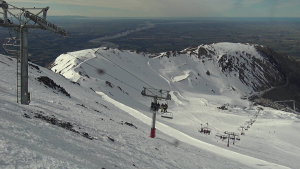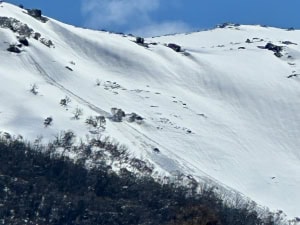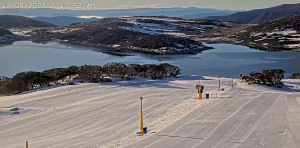Counting down to the PyeongChang 2018 Winter Olympics

Plans for the PyeongChang Olympic Stadium Image:: Supplied
Mountainwatch | Kate Allman
The closing ceremony of an Olympic Games can be a sombre occasion for sport fans. It heralds the end of two weeks of excellent TV programming, and the return to mindless channel surfing through reality shows. For skiers and snowboarders, the recent closing ceremony in Rio started countdown clocks ticking until the next Winter Olympics in PyeongChang 2018. While you’re waiting, check out this short guide on what you can look forward to.
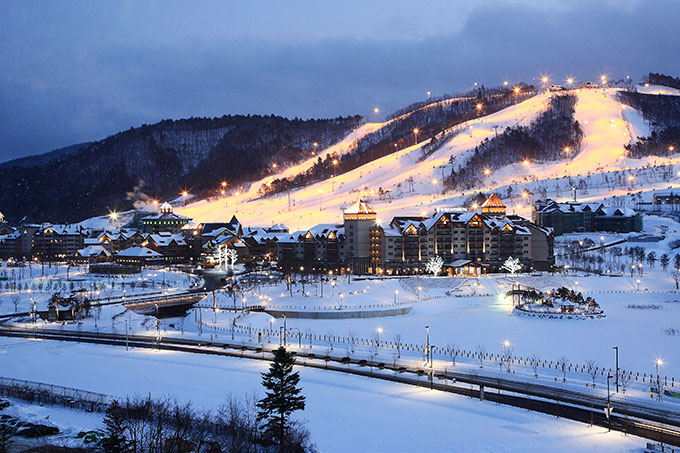
Alepnsia ski resort in Pyeongchang. Image:: Supplied
Skiing in PyeongChang
Pronounced “pee-yong-chang”, PyeongChang is a county about three hours’ drive east of the capital city, Seoul, with four ski resorts that will host the 2018 Games in South Korea. PyeongChang made two unsuccessful bids for the Winter Olympics before winning the right to host the Olympics in 2018, and has since become a ski destination of international interest.
While South Korea might seem like a strange place to go skiing, it actually records very low temperatures throughout winter. For example, while temperatures soared above 15 degrees Celsius on some days during the Sochi Games in 2014, PyeongChang’s absolute maximum February temperature recorded between 2011-2013 was only 0.2 Celsius. The February average was -5, which is certainly cold enough to hold quality snow cover throughout the Games.
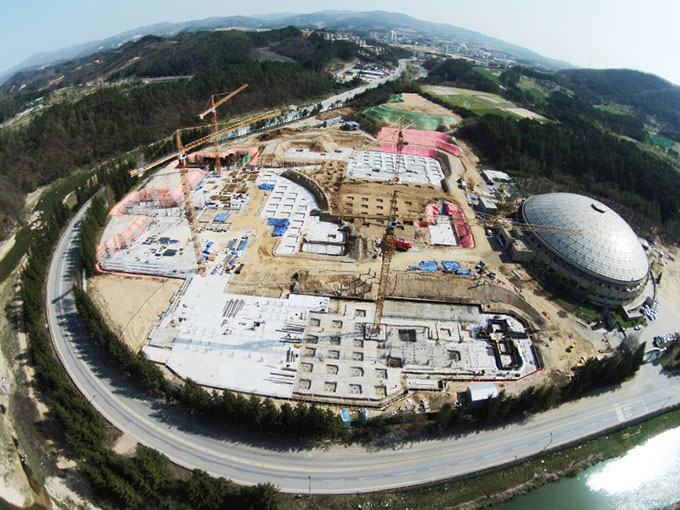
PyeongChang Olympic village under construction Image:: Supplied
The only problem with Korea’s climate, as Mountainwatch’s Alex Horvath discovered on a recent trip to PyeongChang, is that it receives very little natural snowfall. As a result, “South Korea employs the most extensive and most efficient artificial snowmaking system [Alex has] ever witnessed.” Pyeongchang’s snow guns are capable of producing up to 20,000 cubic metres of man-made snow per day, which, when groomed, encourages hard, aggressive and grippy turns. That means we can look forward to some frenetic slalom and snowboard cross races.
New sports
The 2018 Games will see four new sports introduced to the Olympic program: snowboarding big air, curling mixed doubles, speed skating mass start and team alpine skiing. Snowboarding big air, which judges snowboarders on the craziest tricks they can do over a 70-foot jump, is always a great spectacle at the X Games and should be just as exciting on the Olympic stage at PyeongChang. The new speed skating event is another newbie to watch. Remember the mayhem of the speed skating races in Salt Lake City in 2002, where Australian Steven Bradbury won the most unexpected gold medal in history? Well, this time there will be 20 skaters elbowing their way around the rink at high speed, instead of just five. The chaotic “mass start” is a sure recipe for more dramatic upsets.
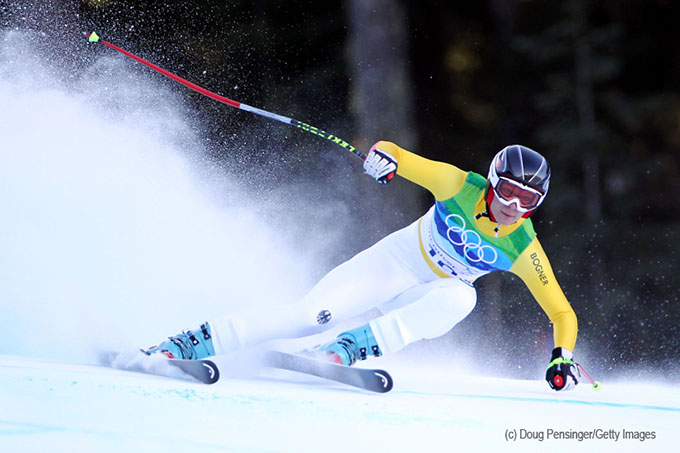
Maria Riesch of Germany competing at the Alpine Skiing Ladies Super Combined of Vancouver 2010 Winter Olympics at Whistler Image:: Doug Pesinger/Getty Images
Athletes to watch
After tragically crashing out in his quarter-final race at Sochi, Australian Snowboard Cross champion Alex “Chumpy” Pullin has a debt to settle in PyeongChang. Chumpy was Australia’s flag bearer at the Sochi Olympics and has proven he is still one to beat, winning the most recent World Cup event for Snowboard Cross in March this year. Alongside him, young Australian snowboarder Belle Brockhoff took home the gold in the women’s event. At just 23, Brockhoff finished the World Cup season ranked third in the world.
Veteran freestyle skier Lydia Lassila also recently confirmed she will push for her 5th Olympics in PyeongChang – a record number of Olympics for any Australian woman. Lassila only just failed to land a women’s first quad-twisting triple somersault at Sochi, and took home the bronze for her efforts. Although the 32-year-old has hinted that her age might caution her from trying anything too crazy this time, in June she told Associated Press that, “Anything is possible.”
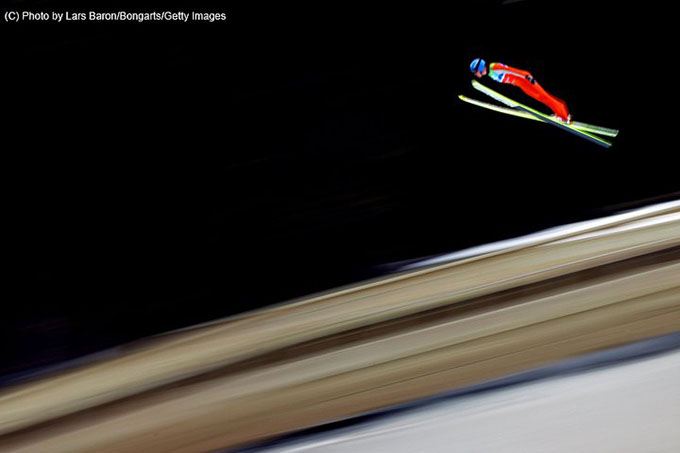
Lukas Runggaldier of Italy jumpcs during the nordic combined on day 12 of the 2010 Vancouver Winter Olympics. Image:: Supplied
One more thing
East-coast Australians will be able to catch live broadcasts of the PyeongChang Games during sensible hours, due to Sydney being just one hour ahead of Pyeongchang’s time zone. That means we can all switch over from reality TV garbage and sit back with a soju (the national liquor of Korea) to watch the events live during prime time. I say “geonbae” (cheers) to that!

